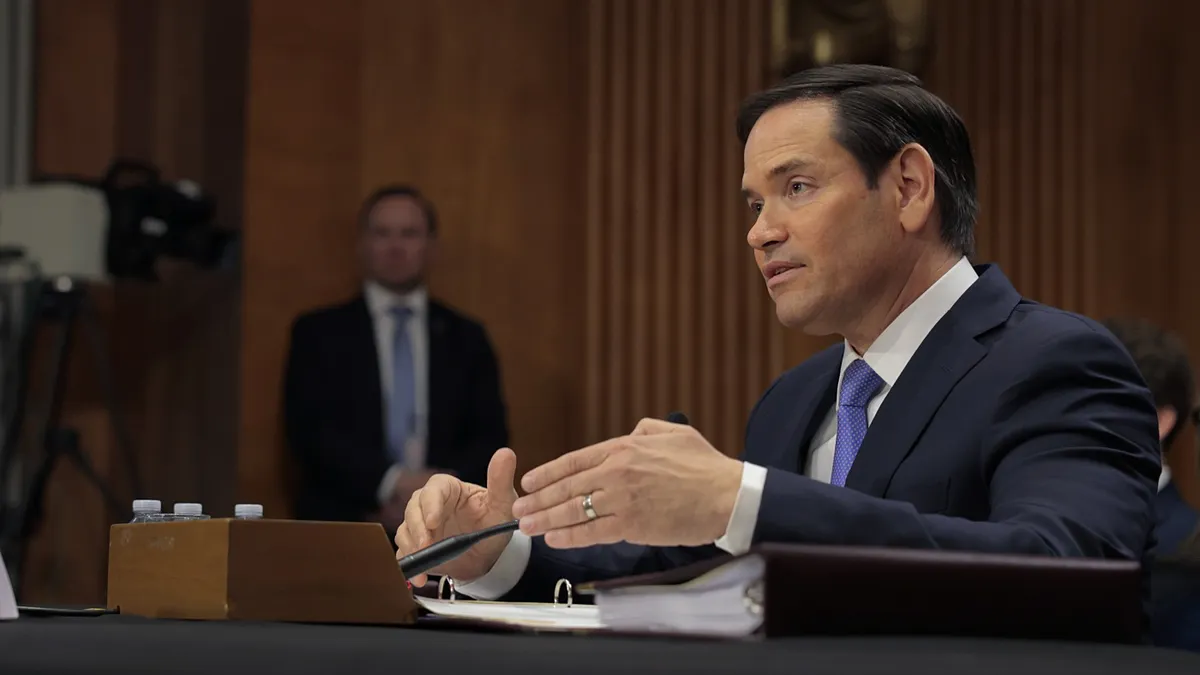
On Tuesday, Secretary of State Marco Rubio appeared before the Senate Foreign Relations Committee, where he previously served as a member, to defend significant cuts to the foreign affairs budget. In his statement, Rubio asserted, "America is back," emphasizing a shift in diplomatic strategy amidst ongoing global challenges.
One of the primary concerns raised during the testimony came from the committee's ranking Democrat, Senator Jeanne Shaheen of New Hampshire. She warned that the proposed budget cuts, particularly the dismantling of the U.S. Agency for International Development (USAID), could lead the United States to cede critical ground to China. Shaheen pointed out that while the Trump administration is slashing funding, China is increasing its diplomatic budget by 8.4%, thus expanding its global influence.
As Shaheen noted in her prepared remarks, “As Elon Musk took a chainsaw to USAID and proposed cutting 83% of foreign programs, China has proposed increasing its diplomatic budget.” She highlighted the discrepancy in diplomatic missions, stating that China currently has more diplomatic missions than any other nation, further complicating the U.S.'s global standing.
Rubio is advocating for a $28.5 billion foreign affairs budget, which is approximately half of what it has been in recent years. This budget reflects a broader strategy of reorganizing and downsizing the State Department and potentially closing some foreign missions, a move that has sparked controversy among lawmakers.
During his testimony, Rubio was also pressed on the administration's approach to negotiating an end to Russia's war in Ukraine. The recent phone call between President Trump and Russian President Vladimir Putin failed to yield an immediate ceasefire, which Ukraine and its allies had anticipated. Shaheen criticized the situation, stating, “What Vladimir Putin is doing now is playing for time, and he's playing the president like a fiddle.”
In response, Rubio dismissed Shaheen's concerns, arguing that Trump is genuinely attempting to end a war that neither side can win. “Russia wants what they do not currently have and are not entitled to, and Ukraine wants what they cannot regain militarily. And that's been the crux of the challenge,” Rubio explained.
Republicans on the Senate Foreign Relations Committee have largely supported the changes Rubio is implementing. Republican Chairman Jim Risch of Idaho previously expressed his desire for extensive reforms at USAID, which he hopes will not survive in its current form. Risch has advocated for folding what remains of USAID into the State Department to streamline operations.
However, not all lawmakers are in agreement. Senator Brian Schatz from Hawaii, a Democrat, stated that he believes the reforms could have been executed in a more thoughtful and bipartisan manner. This ongoing debate highlights the complex dynamics surrounding American foreign policy spending and international relations.